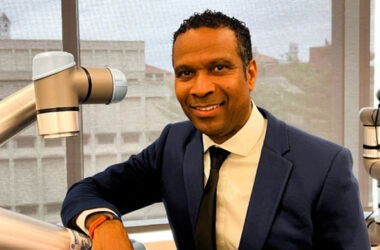THE ongoing fallout from the Brexit, the UK’s recent referendum to leave the European Union, may last for many months as complex decisions are reviewed and agreements renegotiated. It is a tremendous worry that both parties, historical benefactors to the region in general, and Saint Lucia in particular, may both suffer weakness from the separation and lessen their historical support for us. We could then suffer from their reduced capacity and resources available to grant us assistance. From our perspective, we benefit from their unity, where their combined strength is greater than the sum of their individual parts.
There is a related problem which appears frequently in computing systems. The problem of fragmentation arises when the available space is consumed despite there being overall capacity, sufficient for your needs. For example, your data storage device may have a rated capacity of 1000 megabytes, but somehow, it appears filled when you store files that have a total size somewhat less than the rated capacity of 900 megabytes. That is such a common experience that it deserves some further explanation.
Think of a jar in which you store some material such as sand, flour, or water. The volume of the material used matches the volume of the jar. You will not observe any daylight or empty space in the jar. It is completely filled. If you repeat the experiment using larger items such as stones, marbles, or coins, the jar will eventually be filled although there will be empty space inside. That is what fragmentation causes to your disk drive.
Fragmentation generally causes you to suffer reduced capacity. When working in teams, the problem may also be manifest as sub-groups which splinter into smaller cliques that do not actively contribute to the larger group. Computer system designers have found clever ways to reduce this wastage caused by fragmentation. Unfortunately, these attempts usually cause further problems with coordination, and tracking and complexity.
Sometimes, without knowing all of this theory, you may observe a process, a system, and easily tell that it is not working and it is not fair. For example, if you are at a supermarket where there are separate queues to receive customer service, your queue may be waiting longer to be served than another queue, if your sales assistant is slower. Would you agree that such a system seems unfair? Something as simple as a long queue served by multiple sales assistants makes a lot of sense.
Part of the talent needed by leaders and managers, is to recognise when a process is not working properly, or fairly, and to find ways to resolve the problem to make it fairer. Have you ever stood waiting to use an elevator? There are clever algorithms used to prevent you from waiting too long to be served.
Sometimes, casual observations lead to insights, then when addressed, lead to improvements and innovation. Have you scanned your work environment lately?
—
To share your views, contact the author at: www.datashore.net or via The Voice.
About the Author
Dr. Lyndell St. Ville is an ICT Consultant based in Saint Lucia. His expertise includes systems analysis, design, and capacity building.














